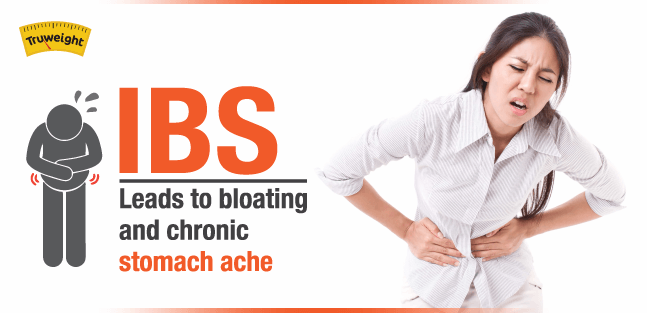One of the chronic digestive disorders causing pain in abdomen and changes in bowel habits is known as irritable bowel syndrome (IBS).
The life-long disease has no permanent cure but constant and incapacitating symptoms increase the severity of the health condition.
Passing of mucus, excessive gas and changes in stool shape are common irritable bowel syndrome symptoms that you should keep in mind.
Table of contents
Recognized as a gastrointestinal disorder, irritable bowel syndrome has many symptoms that influence change in the function of the gastrointestinal tract.
The track does not lose all functions and the syndrome is generally diagnosed if a person has abdominal discomfort for 90 days.
Considering the irritable bowel syndrome symptoms, there are four types of IBS (IBS-C, IBS-M, IBS-D, and IBS-U) that require medical attention at the earliest stage.
What is IBS?
As per the definition of IBS, a group of symptoms causing harm to bowel movement and leading to constant abdominal pain.
There are no life-threatening factors related to it; however, the high scale of high-morbidities involving pelvic pain, fibromyalgia, psychiatric disorder, and chronic fatigue are seen among patients.
Sensitivity to stimuli developing abdominal cramps and motility dysfunction causing muscle spasms are common.
What are the Symptoms of IBS?
The change in the defecation is one of the primary irritable bowel syndrome signs and the condition is diagnosed after noticing the indication for three consecutive days in every month.
Even though it is not a psychotic disorder, the health condition is associated with social and emotional stress leaving an impact on the degree of symptoms. Pain or discomfort and changes in defecation are widely observed in every patient.
If you have normal contraction and hypersensitivity along with the increase of the colon or rectum can suffer from the signs.
However, irritable bowel syndrome long-lasting symptoms are not always traceable and many of the people undergo impulsive remission.
1] Diarrhoea
IBS-D leads to discharge of excretion for more than three times a day. The urgency of discharging along with watery stools can be seen.
2] Constipation
Passing of only three or lesser than three stools in a week is considered as one of the irritable bowel syndrome symptoms.
3] Cramps
Abdominal discomfort may be felt at any hour and it may decrease or increase over the course of time. It is one of the most irritable bowel syndrome symptoms followed by a sudden discharge of bowel movement.
4] Other Symptoms
Bloating, nausea, heartburn, gas, white mucus and feeling of insufficient vacating of the bowel. You should understand that IBD or inflammatory bowel disorder is different from IBS by noticing the different symptoms. For irritable bowel syndrome symptoms, you do not suffer from eye, skin or joint problems and bloody stools.
However, fatigue, diarrhea and abdominal cramping are similar symptoms of both of the health conditions.
What are the Causes of IBS?
As widely known in the medical world that the irritable bowel syndrome causes are not precisely found but there are certain factors hampering functions of the digestive system.
1. GI Motor Problems
If you have IBS, your colon must be in lack of regular movement or motility. Decreased rate of motility causes constipation and rapid rate of movement leads to constipation. Strong muscle contractions and spasms are the factors behind abdominal discomfort.
Many patients with irritable bowel syndrome symptoms have found that increasing bowel contractions are the results of emotional or stress eating.
2. Mental Health Issues
Psychological or mental health problems including depression, panic disorder, post-traumatic disorder, and anxiety are common among people with irritable bowel syndrome symptoms.
However, there is no specific study that has found a clear relationship between the development of IBS and mental health problem.
Reports suggest that psychological stress is susceptible to get exposed through physical malfunctions.
3. Body Chemicals
IBS patients have observed changes in neurotransmitter level indicating the fluctuation of GI hormones. Younger women are susceptible to notice the symptoms more at the time of menstruating unlike the women in their post-menstrual period.
4. Bacterial Inflammation
If you have irritation or infection in the stomach or intestines due to bacterial growth, there is a high risk of developing irritable bowel syndrome symptoms.
However, it is still under research on how gastroenteritis directly leaves an adverse impact on the irregularity of the GI tract.
Treatment for IBS Symptoms
By checking medical history, family history of celiac disease, the risk of anemia, weight loss or gain, fever and a family history of colon cancer, the medical professional initiates the treatment of IBS.
An imaging test, blood test, dietary test, colonoscopy, flexible sigmoidoscopy, and stool sample test are often recommended to find out the intensity of the signs.
Simple irritable bowel syndrome treatment methods are to be followed for limiting the seriousness of the health condition in the future.
1) Changing Lifestyle
Exercising for at least twenty to thirty minutes every week has a significant impact on health due to the active regulation digestive function.
Minimizing stress and tension and getting enough sleep are the effective ways of contributing to irritable bowel syndrome symptoms cure. Get rid of carbonated drinks, alcohol, and caffeine for managing normal bowel movement.
2) Follow Nutritious Diet
Certain foods trigger IBS and it is important to keep insoluble fiber out of the diet and restrict the intake of milk products.
can get the fruitful result by binging on flaxseeds that get rid of bloating and constipation. Furthermore, the low FODMAP diet is proven to be a success among 75% of IBS patients.

3) Choose Probiotics
Not every bacterium has a negative effect on health and probiotics are the good kind that helps in improving digestion along with the immune system.
The probiotics are medicines but they are available in capsules, powder or tablets. Many of the probiotics are also found in fermented milk products that reduce bacterial infection.
The syndrome is susceptible to be prevalent among 20-50 years old people and 50% of patients face prominent symptoms before 35 years.
Adolescent children also become a victim of the health condition but the prevalence of IBS is comparatively lower among the elderly population.
If you or your children have irritable bowel syndrome risk factors, you can visit Possible for receiving proper consultation along with a diet chart.
Next Read:
- Five Health Rules To Follow To Avoid Getting IBS
- Symptoms Of IBS In Women, Its Causes And Ways To Control
- Hyper Acidity Vs. IBS | The Difference Between IBS & Acidity
